
MBTAAnalysis: A look inside the MBTA
0 Comments
/
The MBTA shuttles over a million passengers a day around Greater…
 https://pioneerinstitute.org/wp-content/uploads/CloseupClock-1.jpg
739
1244
Mary Connaughton
https://pioneerinstitute.org/wp-content/uploads/logo_440x96.png
Mary Connaughton2017-02-20 12:34:192017-02-21 09:47:58The Clock is Ticking…….
https://pioneerinstitute.org/wp-content/uploads/CloseupClock-1.jpg
739
1244
Mary Connaughton
https://pioneerinstitute.org/wp-content/uploads/logo_440x96.png
Mary Connaughton2017-02-20 12:34:192017-02-21 09:47:58The Clock is Ticking…….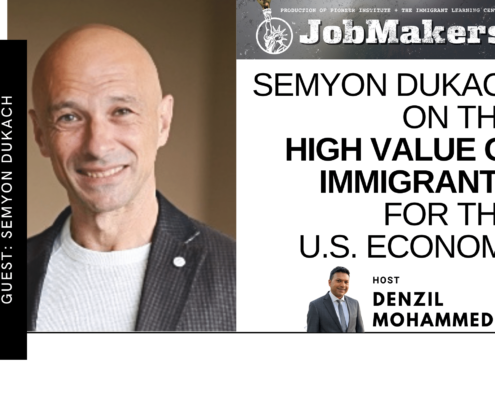
Semyon Dukach on the High Value of Immigrants for the U.S. Economy
This week on JobMakers, Host Denzil Mohammed talks with Russian-born entrepreneur Semyon Dukach about the high value of immigrants to the U.S. Dukach started a seed stage fund for immigrant tech founders, One Way Ventures, in response to the early restrictive moves of the Trump administration, particularly the Muslim ban.

Renters’ Unsung Heroes: Small Landlords Endure Without Income or Relief
Hubwonk host Joe Selvaggi talks with MassLandlords’ Doug Quattrochi about ways landlords faced the challenges of being caught between tenants unable to pay rent during COVID-19 shutdown and having little or no programmatic relief from state and federal agencies.
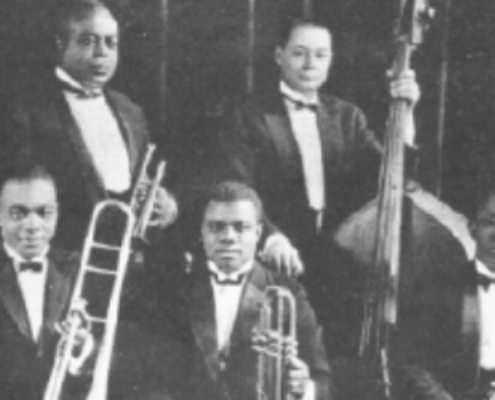
“The Jazz Age” – 1920s America – 50 Resources for High School Students
American schoolchildren need to know more about the basics of the history of and lessons from the 1920s, which did as much as any decade to shape our modern country in the last century. To remedy this, we’re offering a variety of resources to help parents, teachers, and high schoolers:
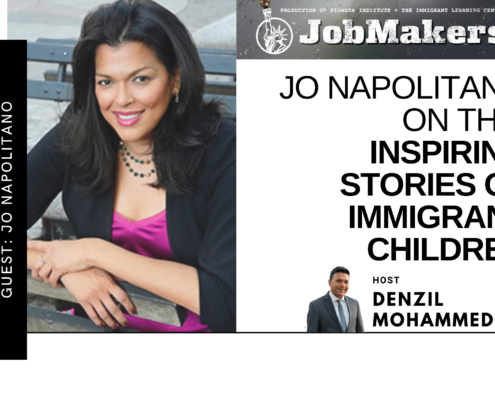
Jo Napolitano on the Inspiring Stories of Immigrant Children
This week on JobMakers, Host Denzil Mohammed talks with Jo Napolitano, journalist, former Spencer Fellow at Columbia University, and author of the new book, The School I Deserve: Six Young Refugees and Their Fight for Equality in America, about the enterprising spirit of immigrants and refugees across the nation and at the U.S.-Mexico border.

AEI’s Naomi Schaefer Riley on Parenting, Excessive Screen Time, & Religion in American Education
This week on “The Learning Curve," Gerard Robinson and guest co-host Kerry McDonald talk with Naomi Schaefer Riley, a resident fellow at the American Enterprise Institute and author of several books, including Be the Parent, Please.

Monarchs of the Sea – American Boats, Ships, & their Captains – 40 Resources for High School Students
In Pioneer’s ongoing series of blogs on curricular resources for parents, families, and teachers during COVID-19, this one focuses on: Celebrating American Boats, Ships, & their Captains.

Alzheimer Breakthrough Disillusionment: Confusion on FDA’s Approval of Expensive and Possibly Ineffective Drug
Hubwonk host Joe Selvaggi talks with precision medicine expert Hannah Mamuszka and Pioneer Institute's Bill Smith about the promises and pitfalls of the newly approved Alzheimer’s drug Aduhelm, and the challenges presented when new, expensive drugs of dubious benefit are introduced to the nation’s formulary.

Umesh Bhuju Seeks a Fair Deal for Immigrants, Farmers & the Environment
This week on JobMakers, Host Denzil Mohammed talks with Umesh Bhuju, owner of Zumi’s Espresso in Ipswich, Massachusetts, about how a business model based on selling nothing but fair-trade products can thrive in a world driven by profit. He describes his early experiences in his homeland of Nepal, where he witnessed child labor, and how that has shaped his pursuit of the American dream.

Study Says Massachusetts Surtax Proposal Could Reduce Taxable Income in the State by Over $2 Billion
As voters now begin to weigh the potential impact of a ballot proposal to increase taxes on business owners, retirees and wealthier households, a new literature review by Pioneer Institute shows that many existing academic studies find that wealthy individuals are particularly sensitive to changes in tax policy. Other studies explicitly warn policymakers that behavioral responses to taxing the rich could erode the tax base and ultimately strain state budgets.

New York Times Best Seller Paul Reid on Winston Churchill, WWII, & the Cold War
This week on “The Learning Curve," Cara and guest co-host Kerry McDonald talk with Paul Reid, co-author, with William Manchester, of the New York Times best-selling biography of Winston Churchill, The Last Lion: Defender of the Realm, 1940-1965. Reid shares how he was enlisted to complete William Manchester’s biographical trilogy on the greatest political figure of the 20th century, which became a best-seller.
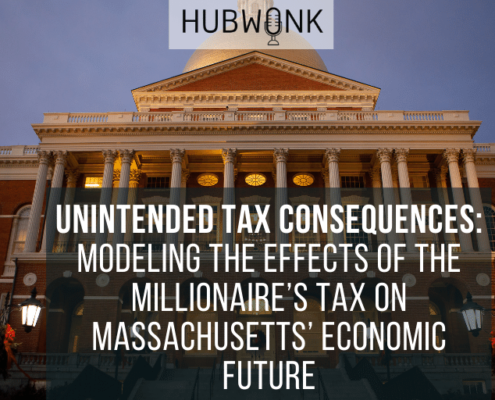
Unintended Tax Consequences: Modeling the Effects of the Millionaire’s Tax on Massachusetts’ Economic Future
Hubwonk host Joe Selvaggi talks with Beacon Hill Institute President Dr. David Tuerck about his recent analysis of the proposed 4% surtax on incomes over $1 million in Massachusetts, and his estimate of the number of individuals who will leave the state as a result. Tuerck, an economist, used STAMP modeling tools comparing the static projections offered by proponents of the so-called "Fair Share Amendment" with a model simulation that accounts for the unintended effects of the tax.
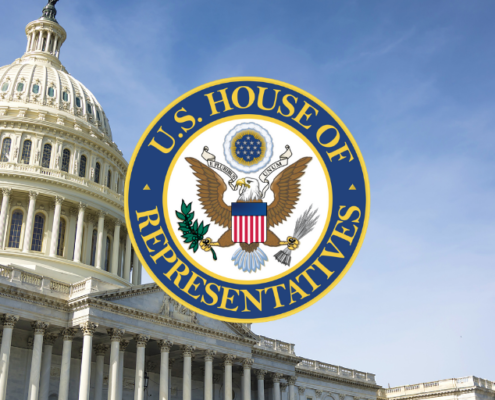
The People’s House The U.S. House Representatives – 40 Resources for High School Students
American schoolchildren need to know more about the basic civics and history of our key democratic institutions. To remedy this, we’re offering a variety of resources to help parents, teachers, and high schoolers:

Dr. Babak Movassaghi on Winning in Football & Healthcare Innovation
This week on JobMakers, Host Denzil Mohammed talks with Dr. Babak Movassaghi, founder of InfiniteMD (acquired last summer by ConsumerMedical), which connects patients with top U.S. medical professionals through second-opinion video consultations, guiding patients to better care. When the world shut down due to COVID-19, Dr. Movassaghi's company was already prepared to serve patients via telehealth. In this episode, they discuss his fascinating pivot from physics and professional football in Germany, to healthcare and innovation here in the U.S., an extension of his ability to navigate multiple identities as an Iranian-German living the American Dream.

Nina Rees on the 30th Anniversary of Charter Public Schools in America
This week on “The Learning Curve," Gerard and Cara celebrate the 30th anniversary of charter schools with Nina Rees, President and Chief Executive Officer of the National Alliance for Public Charter Schools.

This Is No Time for a Tax Increase
This is no time to threaten Massachusetts’ prospects for an immediate economic recovery and the long-term competitiveness of the Commonwealth’s businesses. As Massachusetts lawmakers prepare to vote on whether to send a proposed constitutional amendment that would impose a 4 percent surtax on residents who earn $1 million or more in a year to the statewide ballot in 2022, Pioneer Institute urges them to recognize that tax policy sizably impacts business and job location decisions and that jobs are more mobile than ever.

The Spirit Enlightened Celebrating Classical Music – 50 Resources for High School Students
In Pioneer’s ongoing series of blogs on curricular resources for parents, families, and teachers during COVID-19, this one focuses on: Celebrating Classical Music.

Valuing Life-Saving Drugs: What is the Price of Life and Who Decides?
Hubwonk host Joe Selvaggi talks with Pioneer Institute visiting fellow Dr. Bill Smith about Quality Adjusted Life Years (QALY) standards, and the ways in which so-called objective cost-containing strategies use expert opinion to determine the value of a life and thereby disadvantage the elderly, disabled, and those with less common vulnerabilities to disease.

Jitka Borowick on Starting a Small Business during COVID
This week on JobMakers, Guest Host Jo Napolitano talks with Jitka Borowick, Founder & CEO of Cleangreen, a cleaning service committed to environmentally-friendly practices, and Nove Yoga, launched during COVID. Jitka grew up under communism in the Czech Republic. Determined to learn English, she made her way to the U.S., initially with plans to stay for only one year - but ended up making it her home. Jitka shares the difficulties of learning another language and culture, her pathway to entrepreneurship, her courageous decision to open a new business during a pandemic, and how her companies have successfully adapted to the challenges so many small businesses have encountered over the past year.

Study: Massachusetts Should Retain Additional Healthcare System Flexibility Granted During Pandemic
Massachusetts’ emergency declaration for COVID-19 ends on June 15, and with it some enhanced flexibility that has been allowed in the healthcare system. Some of the added flexibility highlighted barriers that make the system more expensive, harder to access and less patient-centered, and the Commonwealth should consider permanently removing these barriers, according to a new study published by Pioneer Institute.

Blended Learning Expert Heather Staker on Student-Centered Lessons During COVID-19
This week on “The Learning Curve," Gerard and Cara talk with Heather Staker, founder and president of Ready to Blend. They discuss her work with the late Harvard Professor Clayton Christensen and Michael Horn on disruptive innovation and schooling, as well as her book, Blended: Using Disruptive Innovation to Improve Schools, and her recent publication, Developing a student-centered workforce through micro-credentials.
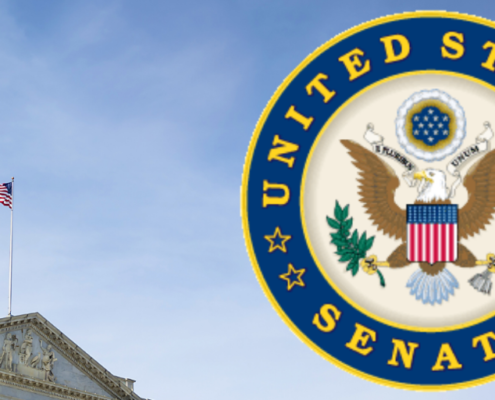
“Ballast for the Ship of State” – The U.S. Senate – 40 Resources for High School Students
The U.S. Senate’s vital, though sometimes dormant, authority in the face of the Imperial Presidency means few Americans and schoolchildren truly understand its constitutional role and inner workings. To remedy this, we’re offering a variety of resources to help parents, teachers, and high schoolers.

Shepherding Infrastructure Spending: Project Labor Agreements’ Effects on Community Public Construction Projects
This week on Hubwonk, host Joe Selvaggi talks with Suffolk University Economics Prof. Jonathan Haughton about his research into the effects and costs attending the adoption of Project Labor Agreements in large construction projects. The discussion focuses on Prof. Haughton’s two research pieces, The Effects of Project Labor Agreements in Massachusetts, and Do Project Labor Agreements Raise Construction Costs?, and the implications of PLAs on future projects in Massachusetts.

Study Finds Deep Flaws in Advocates’ Claims that the Massachusetts Tax Code is Regressive
Proponents of a state constitutional amendment to add a 4 percent surtax on all households with annual income above $1 million frequently cite 2015 data from the Institute on Taxation and Economic Policy, which argues that the Massachusetts tax code is regressive, but a new study published by Pioneer Institute debunks many of the underlying assumptions used in ITEP’s 2015 report.
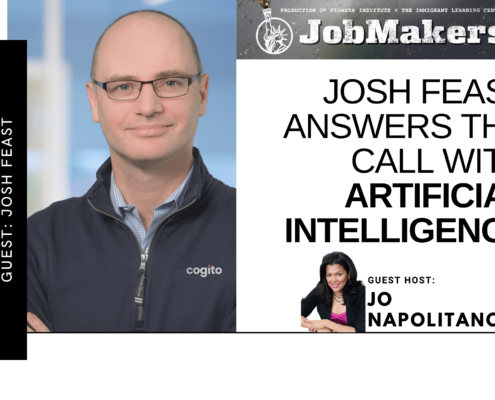
Josh Feast Answers the Call with AI
This week on JobMakers, Guest Host Jo Napolitano talks with Josh Feast, the CEO and Co-Founder of Cogito, a Boston-based software company that deploys Artificial Intelligence (AI) to help employers in a wide variety of industries improve their customer service call centers. They discuss the many applications of Artificial Intelligence, how it helps provide emotional intelligence to augment management practices at large organizations, and how to address some of the concerns about privacy and bias that have been raised around its use.

BU’s Dr. Farouk El-Baz on NASA’s Moon Landing, Remote Sensing, & STEM
This week on “The Learning Curve," Gerard and Cara talk with Dr. Farouk El-Baz, retired research professor and director of the Center for Remote Sensing at Boston University. They discuss his remarkable, varied, and pioneering career in the sciences, surveying both the heavens and the Earth, and key teachers and scientists who have influenced him. Dr. El-Baz shares what it was like serving as supervisor of Lunar Science Planning for NASA's Apollo program, and working on the world-changing project of putting a human on the Moon.

Neptune’s Domain – Oceans, Seas, & Their Creatures- 25 Resources for K-12 Students
Since water is all around us and in us, students should know more about the major bodies of water that shape our planet and our lives, including: what we eat, how we travel, our trade, our wars, and the many fascinating creatures who live in the oceans and seas. In fact, scientists estimate that 91 percent of ocean species remain unclassified, and over eighty percent of our ocean is unmapped and unexplored. We clearly have more work ahead of us to better understand the water that covers most of our world. To assist in this aquatic discovering, mapping, and exploring, we’re offering a variety of resources to help parents, teachers, and K-12 students.

Open Letter: Extend the Term of the MBTA’s Fiscal and Management Control Board
Read Pioneer Institute's Open Letter urging policymakers to extend the term of the MBTA’s Fiscal and Management Control Board (FMCB), which is currently scheduled to sunset at the end of June. The Letter also calls for the Control Board to continue to be made up of transit experts rather than political appointees, and recommends that an independent audit office be created that reports directly to the FMCB.

Origin of COVID-19: As Animal Source Evidence Eludes Scientists, Lab Leak Hypothesis Gains Purchase
This week on Hubwonk, host Joe Selvaggi talks with author and former New York Times science journalist Nicholas Wade about his recent article in the Bulletin of the Atomic Scientists on the possible origins of the SARS2 virus that caused the COVID-19 pandemic. In their conversation, they consider the possibility that, absent finding evidence of a natural jump from animals, the SAR2 virus may have come from a lab.

Mahmud Jafri Builds on a Pakistani Legacy in America
This week on JobMakers, Host Denzil Mohammed talks with Mahmud Jafri, who built on a legacy started by his grandfather and began importing hand-knitted rugs from his native Pakistan, creating opportunities especially for women who traditionally couldn’t work outside the home. Today, he has three Dover Rug & Home stores across Massachusetts, including the Back Bay.

Rafe Esquith on Teaching Shakespeare to Inner-City LA Students
This week on “The Learning Curve," Gerard and Cara talk with Rafe Esquith, an award-winning teacher at Hobart Elementary School in Los Angeles, and the founder of The Hobart Shakespeareans, who annually stage performances of unabridged plays by William Shakespeare. He shares why he founded the award-winning program to teach disadvantaged Los Angeles elementary school students a classical humanities curriculum, the most inspiring experiences and the biggest challenges of teaching highly demanding literary works to young schoolchildren from diverse backgrounds.
